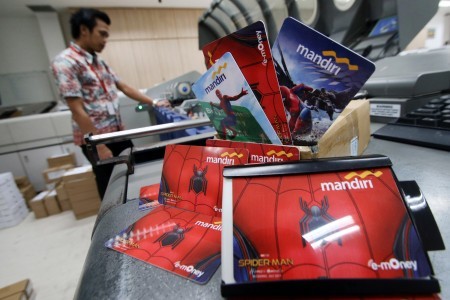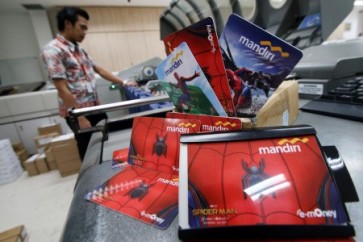Popular Reads
Top Results
Can't find what you're looking for?
View all search resultsPopular Reads
Top Results
Can't find what you're looking for?
View all search resultsPushing toward a cashless society to boost Indonesia's GDP
Change text size
Gift Premium Articles
to Anyone
S
everal studies have highlighted the importance of a cashless society. Boston Consulting Group research in 2019 showed that cash is no longer king. In fact, in the macro context, economies that are more cash intensive tend to grow slowly and miss out on significant financial benefits.
On the other hand, economies that switch to digital could boost annual GDP by as much as 3 percentage points. In the micro context, a digitalized economy provides traces of economic behavior, which can be read through data.
The government then can use the data coming from the cashless transactions to improve and analyze its policies. With this data, officials can predict or identify the patterns of activity, and use such information for urban planning for many sectors such as transportation, housing, energy management and social assistance policies.
In that context, we need to know the extent of non-cash transactions globally. Citing eMarketer data, the adoption of mobile contactless payments increased globally from 2019 to 2021.
China is the leader when it comes to mobile payments, with 87.3 percent of the population reported to use contactless payment methods. However, it is the United States that saw the greatest increase in adoption within the two-year period, rising from 29 to 43.2 percent, and overtaking India (40.1 percent). Indonesia, ranked in eighth position, also saw an increase in the adoption rate from 19.8 to 24.6 percent in 2021. Compared with developed countries such as the United Kingdom (ninth, 24.4 percent), France (10th, 21.1 percent), and Germany (12th, 19 percent), Indonesia fares better.
Data from Bank Indonesia (BI) on non-cash transactions — i.e., electronic money, debit cards and credit card transactions — confirm the global data above. The growth of electronic money has continued to be robust.
Referring to BI, by June 2022, e-money grew by 34.6 percent year-on-year (yoy). This differs from debit and credit cards in which some transactions may require contact interactions. The monthly growth of card-based transactions — credit and debit — declined, except in the period of pre-Ramadan 2021. Unlike electronic money, the use of debit and credit cards is highly dependent on the dynamics of people's mobility.

















